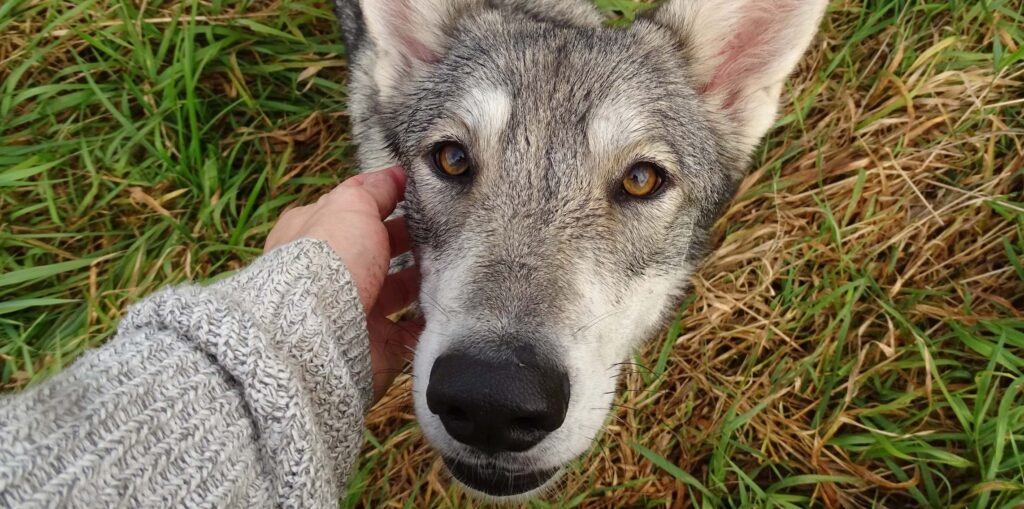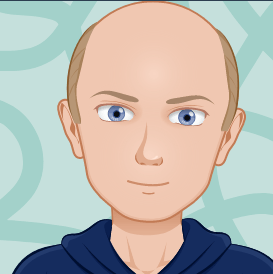
There are two wolves in you. No, wait, just one. No – maybe not a wolf? The wolf is you? Anxiety’s the wolf? Ah, look: this little game will help you make sense.
About the game
“Adventures with Anxiety” is a text adventure about a human and their anxiety. In the internal monologue which follows, you’re given the anxiety’s role. Protecting your human from DANGERS is what you’re there for, but it drains the human’s energy; when they fight back, it’s a win for the humans, but what if they stop listening altogether?
This game by Nicky Case appears cheesy and simplistic at first – the formula is well-known, the plot will be more or less linear, and the concept might raise a few eyebrows among people whose adventures with anxiety took them to many, many places in search of answers.
And yet, the game’s perspective and message is strong and assertive enough to matter – the graphics, sound effects and pacing are carefully calibrated to stay on the helpful side of gaming irony – and the overall experience, for which you won’t need to pay a penny, is definitely valuable.
About what it taught me
There is merit in saying things which go without saying. There is value in repeating, through unexpected media, the lessons and experiences we take for granted. And there’s freshness in a perspective which gets altered, flipped, fragmented, made your own. All this is to say: “Adventures with Anxiety” helped me re-learn some lessons from all my therapy sessions, and re-live them.
Its compact format and speedy pacing was another thing I learned from. I could easily fit two “AwA” sessions into a single therapy session. I’m not saying that either is a waste of time: rather, I found that by playing a game about humans and anxieties, I was able to find again many of the lessons and insights which I’d tried to gain previously. This will register differently for humans who are only beginning to tame their anxieties. For those with more mileage, such games may be useful revision opportunities.
I also learned a valuable lesson about self-reflection done differently. I don’t want to spoil the game for you, so here’s what I’ll say: self-reflection hits different if there’s an element of surprise to it, an unexpected confrontation with something you’d half-forgotten. The way Nicky Case structured it may not be to your liking; I saw what was done, and appreciated it.
Not just me?
Using games for health and well-being is a fascinating area of research. I already mentioned that it’s difficult to find areas of universal agreement when it comes to gamification for physical health or motivation. In mental wellbeing, one recent meta-study mentions a “black box effect” whereby researchers seem tempted to use gamification and games-related themes or jargon without deeper understanding.
Regardless of this, anxiety seems to be an area where game-like interventions are considered worthwhile, and some recent research suggests that engagement and acceptability of treatments increases thanks to gamification (although these interventions are short-term).
What it will cost you
“Adventures with Anxiety” is a browser-based game. It’s free to play, and in the public domain.
Book pairing
You know about all the anxiety books, if you’ve read this far. So f*ck that. Ruby Elliot’s “IT’S ALL ABSOLUTELY FINE: Life’s complicated so I’ve drawn it instead” is a collection of drawings about mental health. They’re fun, and warm, and appreciating them takes about as long as playing the game.
Music pairing
To stay true to the game’s style, I’d suggest mixing liberal lashings of My Chemical Romance and Siouxsie and the Banshees (you don’t need sound to play the game). The soundtrack’s creator is prolific/terrific, and can be found online here.
What else to play
“Celeste” is a textbook example of using a video game to deliver a mental health allegory. For more browser based, helpful stuff, “You feel like shit” is a surprisingly helpful game which prevented a few shitty days this month already.
This post is part of “100 games, and what they taught me” – a series of short essays about the games I play and the things I learn from them.
(Photo by Aldo Houtkamp on Unsplash)

I am an editor, author, translator and teacher based in the UK.
I am always looking to get involved in new projects. My areas of expertise:
ELT publishing – print and digital
Language learning
Translation – POL-ENG-POL, non-fiction
Editorial project management
Does it look like we could work together? Download my CV or get in touch via e-mail.